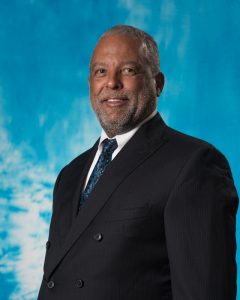BCEM Diplomates Play an Integral Role in Emergency Medicine
 Lewis W. Marshall, MD, the two-time president of the American Association of Physician Specialists, Inc.®, credits his certification with the Board of Certification in Emergency Medicine (BCEM) with helping to advance his career. His interest in the BCEM was prompted by a conversation that he had while working in a Level 1 trauma center in Queens, New York.
Lewis W. Marshall, MD, the two-time president of the American Association of Physician Specialists, Inc.®, credits his certification with the Board of Certification in Emergency Medicine (BCEM) with helping to advance his career. His interest in the BCEM was prompted by a conversation that he had while working in a Level 1 trauma center in Queens, New York.
“The chairman of the department told me that if I became board certified in emergency medicine, I would be promoted to assistant director of emergency medicine,” Dr. Marshall said. “Once I obtained my certification, I was promoted. I believe that being certified in emergency medicine helped me in several positions, including as the city medical director for the New York City Fire Department (FDNY), chair of emergency medicine at two large, busy urban trauma centers, and in my continued involvement with EMS.”
Dr. Marshall’s resume is impressive. In addition to his certification with the BCEM – a Member Board of the American Board of Physician Specialties® (ABPS) – Dr. Marshall also holds disaster medicine certification through the ABPS, as well as certification in internal medicine, legal medicine, and health care management from other certifying bodies. Today, he is a healthcare executive whose career is highlighted by progressive experience in primary care, hospital care, and leadership of large healthcare organizations, including the country’s largest prehospital ambulance service through the FDNY. He is a recognized expert in delivery, best practices, and standards of care for internal medicine, ambulatory care and community health services, and emergency medicine and disaster response.
Back when Dr. Marshall sought emergency medicine certification, the ABPS was the only multi-specialty board that gave qualified physicians trained in a primary care specialty the opportunity to show that they had the skills and knowledge necessary to provide the highest level of emergency room care. Today, that fact has not changed, and as more hospitals choose to staff their emergency rooms primarily with EM-certified physicians, the ABPS represents an ideal board certification option.
Whether career EM physicians are certified in family medicine, pediatrics, general surgery, or internal medicine, applying for certification with the BCEM can go a long way toward broadening their opportunities. These doctors have already demonstrated that along with their propensity for teamwork, they are quick thinkers who have the composure and confidence to deliver critical care in stressful emergency room environments. With the BCEM as an option, there is no need for such exceptionally capable professionals to face the prospect of stalled careers due to the lack of EM certification.
The ABPS encourages experienced EM doctors trained in a primary specialty to follow in the footsteps of high achievers like Dr. Marshall by applying for certification with the BCEM. For more information about the BCEM’s eligibility requirements, or the benefits of earning certification through the BCEM, contact the ABPS today.






